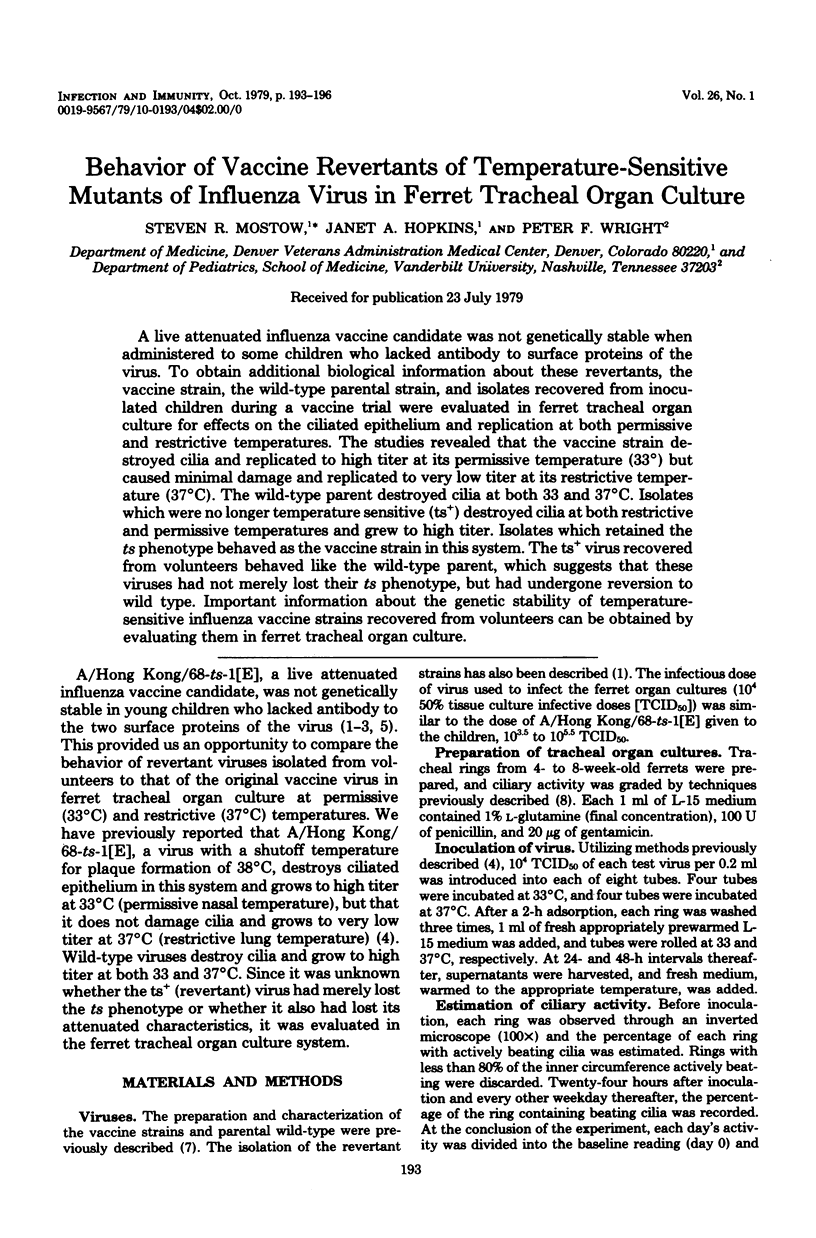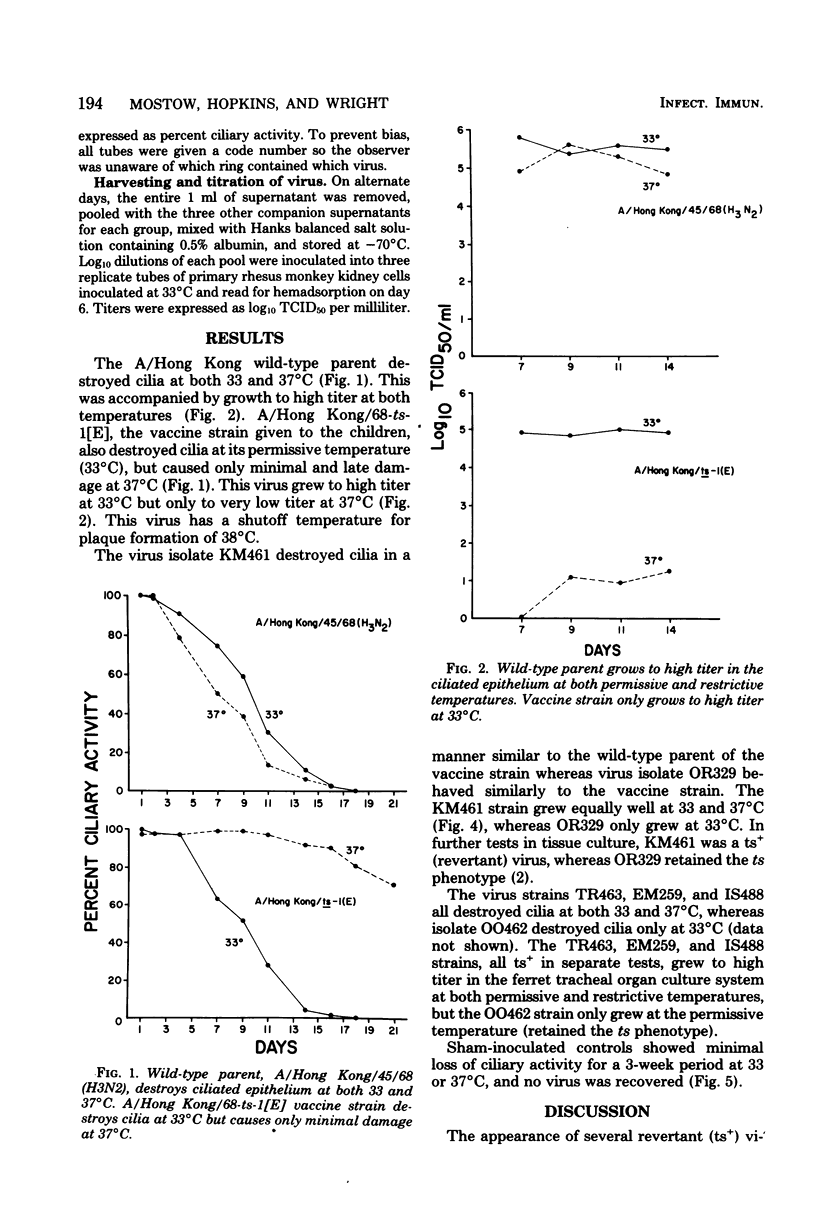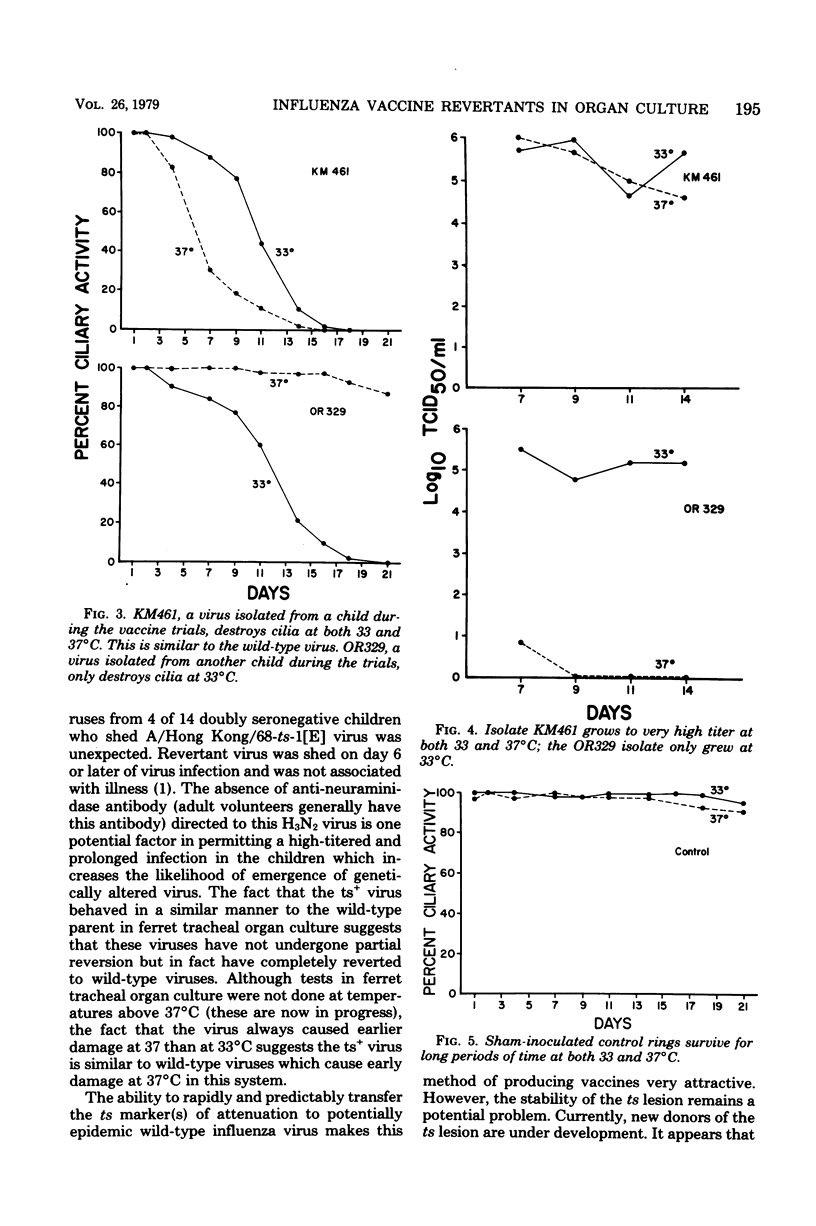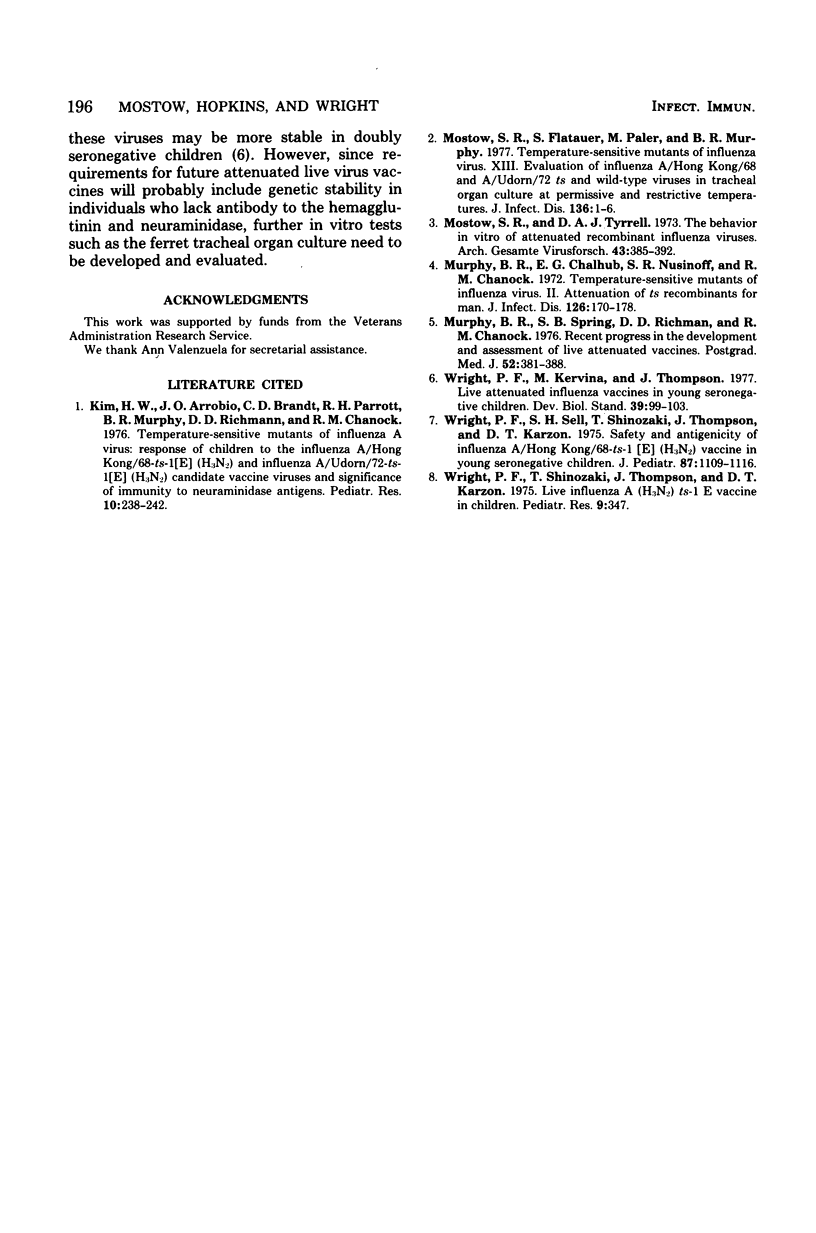Abstract
A live attenuated influenza vaccine candidate was not genetically stable when administered to some children who lacked antibody to surface proteins of the virus. To obtain additional biological information about these revertants, the vaccine strain, the wild-type parental strain, and isolates recovered from inoculated children during a vaccine trial were evaluated in ferret tracheal organ culture for effects on the ciliated epithelium and replication at both permissive and restrictive temperatures. The studies revealed that the vaccine strain destroyed cilia and replicated to high titer at its permissive temperature (33°) but caused minimal damage and replicated to very low titer at its restrictive temperature (37°C). The wild-type parent destroyed cilia at both 33 and 37°C. Isolates which were no longer temperature sensitive (ts+) destroyed cilia at both restrictive and permissive temperatures and grew to high titer. Isolates which retained the ts phenotype behaved as the vaccine strain in this system. The ts+ virus recovered from volunteers behaved like the wild-type parent, which suggests that these viruses had not merely lost their ts phenotype, but had undergone reversion to wild type. Important information about the genetic stability of temperature-sensitive influenza vaccine strains recovered from volunteers can be obtained by evaluating them in ferret tracheal organ culture.
Full text
PDF



Selected References
These references are in PubMed. This may not be the complete list of references from this article.
- Kim H. W., Arrobio J. O., Brandt C. D., Parrott R. H., Murphy B. R., Richman D. D., Chanock R. M. Temperature-sensitive mutants of influenza A virus: response of children to the influenza A/Hong Kong/68-ts-1(E) (H3N2) and influenza A/Udorn/72-ts-1(E) (H3N2) candidate vaccine viruses and significance of immunity to neuraminidase antigen. Pediatr Res. 1976 Apr;10(4):238–242. doi: 10.1203/00006450-197604000-00008. [DOI] [PubMed] [Google Scholar]
- Mostow S. R., Flatauer S., Paler M., Murphy B. R. Temperature-sensitive mutants of influenza virus. XIII. Evaluation of influenza A/Hong Kong/68 and A/Udorn/72 ts and wild-type viruses in tracheal organ culture at permissive and restrictive temperatures. J Infect Dis. 1977 Jul;136(1):1–6. doi: 10.1093/infdis/136.1.1. [DOI] [PubMed] [Google Scholar]
- Mostow S. R., Tyrrell D. A. The behaviour in vitro of attenuated recombinant influenza viruses. Arch Gesamte Virusforsch. 1973;43(4):385–392. doi: 10.1007/BF01556156. [DOI] [PMC free article] [PubMed] [Google Scholar]
- Murphy B. R., Chalhub E. G., Nusinoff S. R., Chanock R. M. Temperature-sensitive mutants of influenza virus. II. Attenuation of ts recombinants for man. J Infect Dis. 1972 Aug;126(2):170–178. doi: 10.1093/infdis/126.2.170. [DOI] [PubMed] [Google Scholar]
- Murphy B. R., Richman D. D., Spring S. B., Chanock R. M. Use of temperature-sensitive mutants of influenza A virus as live virus vaccine strains. Evaluation in laboratory animals, adults and children. Postgrad Med J. 1976 Jun;52(608):381–388. doi: 10.1136/pgmj.52.608.381. [DOI] [PMC free article] [PubMed] [Google Scholar]
- Wright P. F., Kervina M., Thompson J., Torrence A. E., Karzon D. T. Live attenuated influenza vaccines in young seronegative children. Dev Biol Stand. 1977 Jun 1;39:99–103. [PubMed] [Google Scholar]
- Wright P. F., Sell S. H., Shinozaki T., Thompson J., Karzon D. T. Safety and antigenicity of influenza A/Hong Kong/68-ts-1 (E) (H3N2). J Pediatr. 1975 Dec;87(6 Pt 2):1109–1116. doi: 10.1016/s0022-3476(75)80123-5. [DOI] [PubMed] [Google Scholar]


